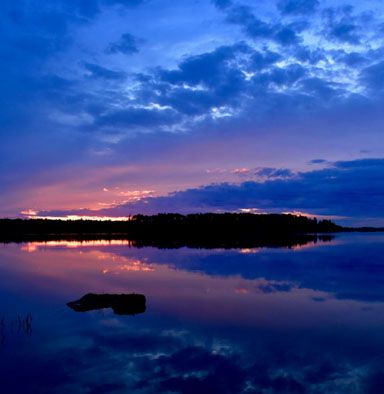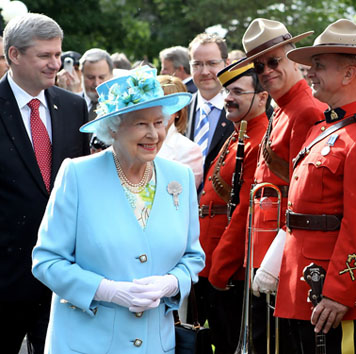Catching up with Pierre Poilievre — how a guy born and raised in Calgary became an Ottawa region MP and likely next leader of the Conservative Party of Canada
Jul 19th, 2022 | By Randall White | Category: In BriefONTARIO TONITE. RANDALL WHITE, FERNWOOD PARK, TORONTO, TUESDAY 19 JULY 2022. For the longest time I have done my best to ignore Pierre Poilievre (“he pronounces it ‘paul-ee-EV’”), current frontrunner in the Conservative Party of Canada leadership race (to be decided this coming Saturday, September 10 — now less than two months away).
It was as long as 18 years ago, on June 28, 2004, that, having only recently celebrated his 25th birthday, M. Poilievre first entered the Canadian House of Commons.
He won election as MP for “Nepean-Carleton (since renamed Carleton), a sprawling suburban and rural riding southwest of Ottawa, under the newly united Conservative banner that Stephen Harper knitted together out of the [Canadian] Alliance [Alliance canadienne] and the Progressive Conservatives.”
It says something about Pierre Poilievre’s current credentials that he has been comfortably re-elected for more or less the same riding (“renamed Carleton” in 2012 for 2015) in every subsequent federal election (2006, 2008, 2011, 2015, 2019, 2021).
Career under Harper government

Poilievre was the youngest MP in the House when first elected. (Andrew Scheer was 14 days older.) And he subsequently earned a reputation as a “Conservative attack dog” inside and outside parliament.
The Stephen Harper government that was more than nine years in office, 2006–2015, gave the young attack dog Pierre Poilievre some intriguing assignments. (Overseeing the drafting of the controversial 2006 Federal Accountability Act is one example.)
Perhaps understandably, however (given his youth alone), Poilievre only made it into the cabinet proper as Minister of Employment and Social Development for the Harper government’s last nine months in 2015.
He nonetheless also did some controversial work on the Fair Elections Act (passed) and the bill that was to become the Citizen Voting Act (not passed) as Minister of State for Democratic Reform, 2013–2015.
My first impressions …

Until quite recently my own perception of Pierre Poilievre had everything to do with his reputation as a Conservative attack dog.
What I saw of him on TV, inside and outside the House, gave me the impression that he was just another extreme right-wing conservative who attacked his progressive opponents very aggressively but also altogether quite mindlessly and shamelessly.
He was just yet another very young superficial ideological disciple of Friedrich Hayek and Milton Friedman, who had grown up in the 1980s/early 1990s age of Ronald Reagan, Margaret Thatcher, and George HW Bush.
I didn’t think M. Poilievre had much of interest to say about the real issues in Canada today. And the last thing I wanted was to know more about him.
Catching up with Calgary
Not paying much attention also meant that I inadvertently jumped into some wrong impressions.
I knew from TV that Pierre Poilievre was MP for an Ottawa region riding, and his name was clearly French Canadian. I casually assumed he was an Ottawa francophone, trying to make a name for himself by taking extreme public positions.
Now that he’s the frontrunner in the Conservative leadership race, I have recently delved a little more deeply into his biography. And in fact Pierre Poilievre was born in Calgary, Alberta on June 3, 1979, to an unmarried mother only 16 years old.
As he himself explained to Maclean’s magazine earlier this year : “I had a teenage unwed mother who had just lost her mother when I was born, and it was two schoolteachers from Saskatchewan who adopted me and raised me and basically gave me a life … So I have always believed that it is voluntary generosity among family and community that are the greatest social safety net that we can ever have. That’s kind of my starting point.”
French Canada in Calgary and Ottawa
To be clear, Marlene and Donald Poilievre from Saskatchewan had moved to Calgary by the time they adopted Pierre Marcel Poilievre. And he was raised there, where he went to Henry Wise Wood High School, and the University of Calgary.
At the same time, as Steve Burgess has explained in The Tyee : “Pierre Marcel Poilievre … was adopted at birth and raised by a Franco-Albertan couple. That probably explains why Poilievre speaks fluent French with a bit of a Jason Kenney accent.”
After graduating from the University of Calgary Pierre Marcel Poilievre finally took a job with then Canadian Alliance leader Stockwell Day. And this soon took him to Ottawa, where he eventually first ran for Stephen Harper’s new Conservatives in Nepean-Carleton in 2004.
To bring his personal life in the Ottawa region exurbs up to date, Wikipedia explains : “In January 2018, Poilievre married Anaida Galindo, a Senate aide, in a ceremony in Portugal. Their first child, Valentina Alejandra Poilievre Galindo, was born on October 17, 2018. On September 12, 2021, Poilievre welcomed his second child, Cruz Alejandro Poilievre.”
The future of Pierre Poilievre
Some say that once Pierre Marcel Poilievre wins the Conservative leadership this coming September 10, he will start to broaden and moderate the extreme right-wing attack dog persona he has presented to Canadians so far, in the interests of broadening the base of support for the Conservative Party of Canada.
I have no idea if anything like this will happen myself. But I am certainly sceptical. At the same time again, the Pierre Marcel Poilievre who grew up as a French Canadian in Alberta does strike me as a stronger Conservative leader than the extreme right-wing attack dog who I mistakenly imagined was just another Ottawa region francophone.
It is often said as well that Poilievre is Stephen Harper’s man in the leadership race that will conclude this coming Saturday, September 10, 2022. And this makes me wonder whether Poilievre has ever read John Geddes’s Maclean’s article of April 11, 2015 : “Stephen Harper: Conservative? Maybe not … Not so fast with the labels. An exhaustive audit of Stephen Harper’s nine years in power reveals a surprisingly (gasp) liberal economic record.”
Someone who believed like Stephen Harper in office in this respect could even give Justin Trudeau (and Jagmeet Singh) something to worry about for the next fixed-date Canadian election …
Well, maybe …
(And in any case October 20, 2025 is still quite far away!)






Good information. Thank you!